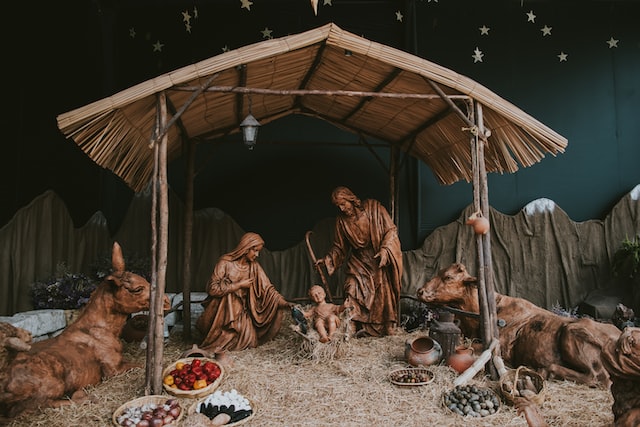Our Advent Calendar 2024 concludes today with the last article. In this article, we will attempt to answer the question: Why do we celebrate Christmas in December?

Jesus’ birth time is unknown, and the Bible does not mention a date. As a matter of fact, early Christians did not celebrate Jesus’ birth, and no one knows when he was born (some scholars believe that he was born in the early spring, closer to Easter, the holiday commemorating his resurrection).
The origins of the holiday and its December date lie in the ancient Greco-Roman world, as commemorations probably began sometime in the 2nd century. There are at least three possible origins for the December date. The Roman Christian historian Sextus Julius Africanus dated Jesus’ conception to March 25 (the same date upon which he held that the world was created), which, after nine months in his mother’s womb, would result in a December 25 birth.
But was Jesus really born on December 25 in the first place?
Probably not. For instance, the presence of shepherds and their sheep suggest a spring birth.
The church in Rome began formally celebrating Christmas on December 25 in 336, during the reign of the emperor Constantine. The date was not widely accepted in the Eastern Empire for another half-century, and Christmas did not become a major Christian festival until the 9th century.
According to Sarah Pruitt, when church officials settled on December 25 at the end of the third century, they likely wanted the date to coincide with existing pagan festivals honoring Saturn (the Roman god of agriculture) and Mithra (the Persian god of light). That way, it became easier to convince Rome’s pagan subjects to accept Christianity as the empire’s official religion.
On the other hand, RMF interviewed Rev. Prof. Naumowicz who claimed the following:
As the Holy Bible prophesied, the Reedemer would bring light to the world, the star of Jacob would shine, and the sun of justice would rise. In the Gospel of John, light is said to illuminate the darkness of this world. That is why such a date was chosen – in the Roman calendar, which was used at that time, the winter solstice occurred on December 25.
The celebration of Christmas spread throughout the Western world over the next several centuries, but many Christians continued to view Epiphany and Easter as more important.
